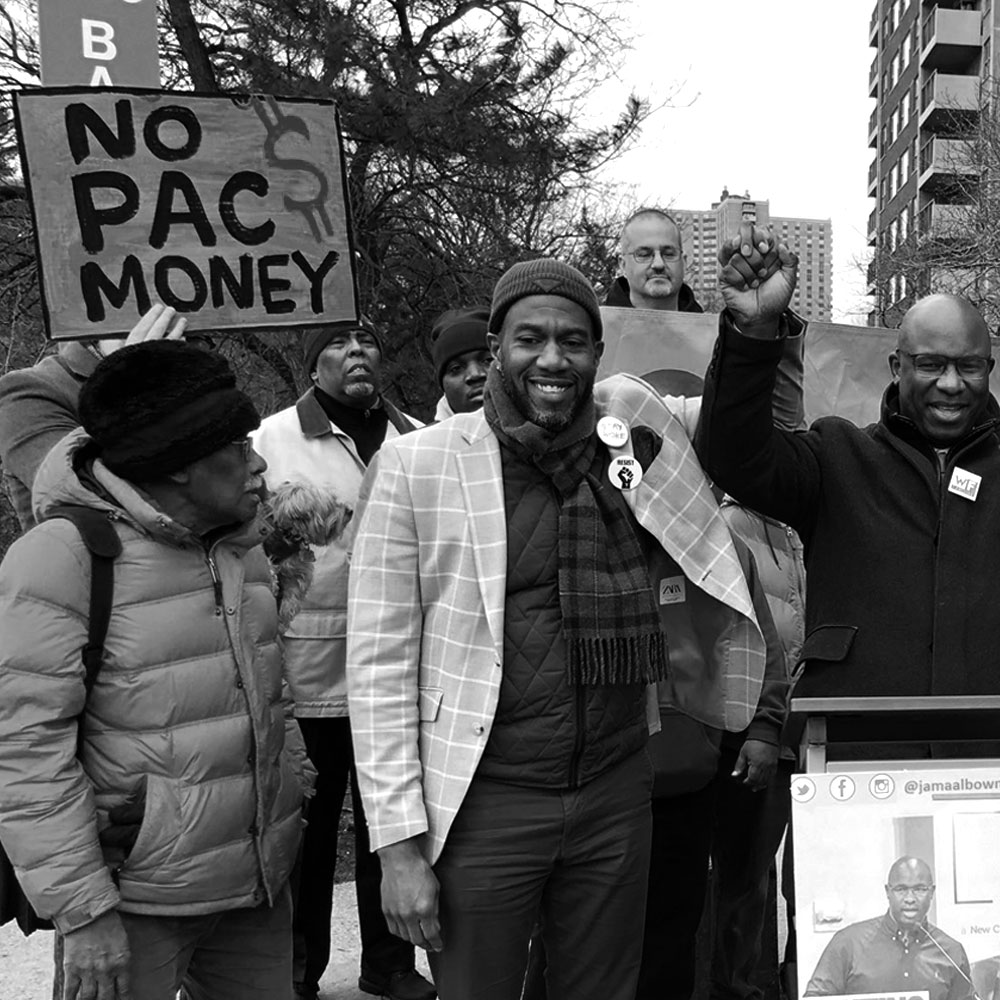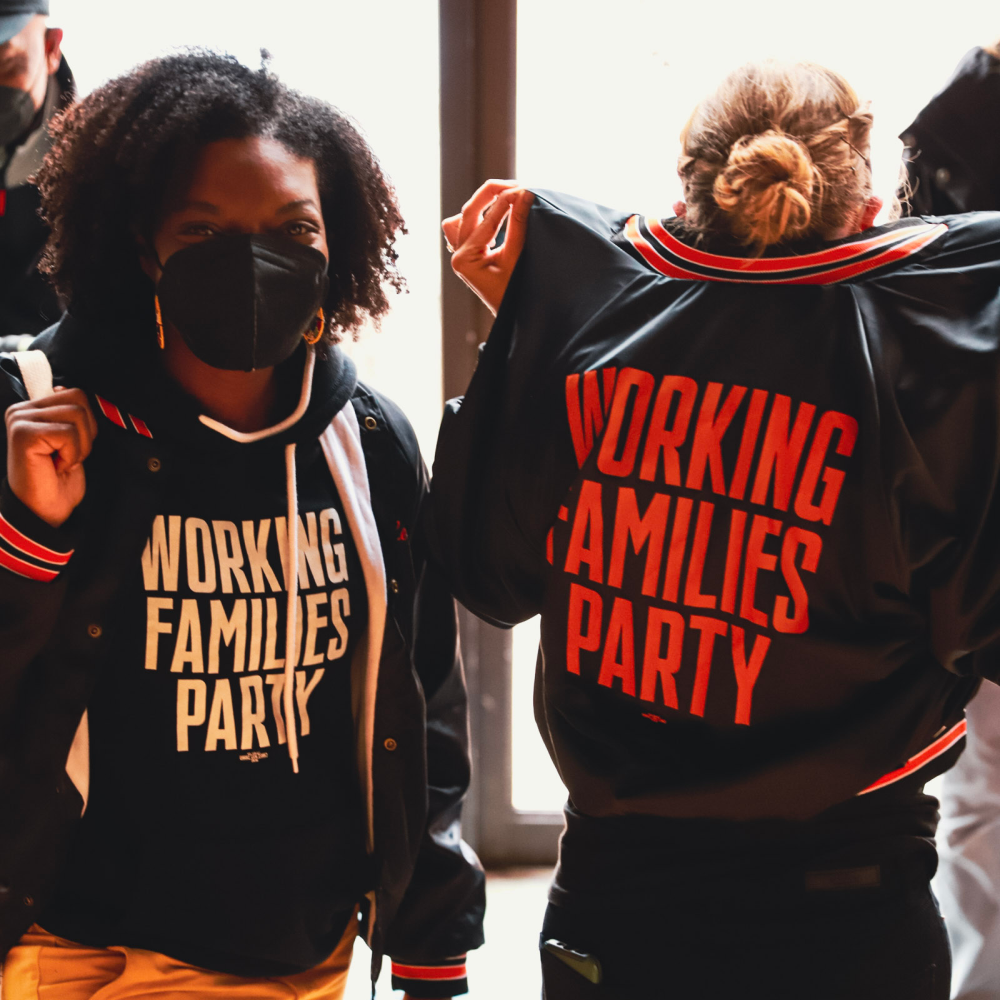How to Meet this Moment
Please read the below message from WFP National Director Maurice Mitchell about some of the actions we are calling for in order to meet this current moment. Then take a moment to add your name if you agree.
We are living through a public health crisis — one that is revealing just how interconnected our world is, and just how fragile some of our basic systems are.
The global COVID-19 (also called coronavirus) pandemic, along with the measures now being implemented in many communities to mitigate it, is impacting the lives of Americans in ways large and small.
From school closures, to the banning of large public gatherings, to concerns about senior family members and vulnerable populations, to people suddenly finding themselves out of a job or at risk of losing one, the anxiety and pain being felt by so many of us and our families is rapidly escalating.
Because of Trump’s massive and unforgivable failure to prepare for and respond early to this crisis, the costs being inflicted on working families are likely to get worse. There’s a real risk that Trump’s botched response could tank our economy and drive us into recession.
This is a crisis that will affect us all in ways we still cannot entirely predict. We know addressing it will require banding together to support and look after one another. And we know it will also require immediate action to ensure that we prioritize those most severely impacted by this pandemic and significantly slow the spread of this virus.
We call on federal, state, and local leaders to:
Immediately Improve Our Public Health Infrastructure
- Provide cost-free healthcare to everyone immediately
- Make sure testing and treatment for COVID-19 are widely available
- Guarantee paid sick leave for all to ensure that people don’t have to choose between going to work sick and keeping a paycheck
- Guarantee paid family and medical leave for those who are caring for those who are sick
Protect the Most Vulnerable
- Impose a moratorium on deportations, evictions, foreclosures, and utility shut offs, which force people into desperate situations and force people to relocate in contrast to the best public health advice which is to simply remain at home
- Eliminate work requirements for food stamps and other assistance
- Release all people being confined pre-trial on nonviolent offenses to prevent the spread of the virus among a vulnerable population confined to close quarters
Prevent a Catastrophic Recession
- Pass one trillion dollar federal investment package targeted towards working people, small businesses, and state and local services, not to financial institutions
- Provide immediate and direct cash aid to working families to help them stay afloat
- Cancel student debt now through executive order
- Enact a tax on extreme wealth to pay for all of the above
Defend Democracy
- Provide nationwide emergency vote by mail, online voting, automatic voter registration, and other measures to make sure people can vote in the midst of a pandemic instead of postponing or cancelling elections
- Waive petitioning requirements for political campaigns, so that canvassers don’t have to go knocking on doors to get their candidate on the ballot
Trump may be single-mindedly focused on keeping Wall Street afloat and bailing out oil companies. But the economic damage caused by this pandemic will not only be massive in scale — it will also fall squarely on working families. In the days and weeks ahead, Congress will need to put working people and vulnerable communities first in any response.
We cannot allow the federal government to respond to this moment of crisis with the incompetence and neglect it showed in the wake of Hurricane Katrina in 2005, or as it did in response to the 2008 financial crisis, by bailing out banks and CEOs and leaving millions of people unemployed and homeless. That response was the result of a philosophy of government that said protecting corporate profits and bank balance sheets comes first, that people should pull themselves up by their bootstraps while banks get bailouts, and that government is wasteful and inefficient. This line of thinking is also why more than 30 million Americans have no health insurance at all; tens of millions of Americans have no paid sick leave; and for the glaring inadequacies of our public health systems that are on display right now. It’s why cities are hesitating to close schools, because they know school is the only place where many of their students get fed.
That same philosophy, embraced by Republicans and too many Democrats, is responsible for the fragility not just of our public health system, but of all the systems that will be strained by climate change: energy, water, food, transport, and more. And, just as with COVID-19, when those systems fail, it’s poor people, working people, Black, brown and indigenous people who will suffer most, while the billionaire class helicopters off to their bunker houses.
We need to respond to the public health crisis and economic insecurity that COVID-19 is causing through massive investment now. We also need to make investments that will allow us to respond to crises on the horizon, because they are inevitable. We can make our country more resilient for this crisis and the next by passing legislation to guarantee jobs to all displaced workers and employ millions to transform our economy towards renewable energies that stabilize both our nation and our climate as outlined under the Green New Deal, a Medicare for All single-payer healthcare system that guarantees high-quality healthcare to all Americans as a right, and canceling student debt. We have the capacity, the resources, and the know-how to do all of these things. Moments like the one we’re in right now show us why they’re necessary. We just need to win the power to do it.
Finally, while we demand collective solutions from our leaders, there are things you as an individual can do to “flatten the curve”, slow the spread of the virus and help your community. These include:
- Stay home as much as you can
- Sneeze or cough into a tissue, and throw the tissue away
- Impose social distance: don’t shake hands, hug or kiss
- Don’t hoard vital goods other people may need
I know this is a frightening moment. Our lives may feel upended. The future is uncertain. And we all have family members, neighbors, and loved ones we are thinking of right now. But here’s what you need to know:
We can get through this. We will get through this. The way we will do it is through radical generosity, solidarity, and an unwavering will to fight for the solutions that we know are needed.
If you agree that these are the types of solutions we need in response to this crisis, sign on and add your name here. And feel free to also share any thoughts or ideas you have about how we should approach this historic moment.
In solidarity, always,
Maurice Mitchell
National Director
Working Families Party

